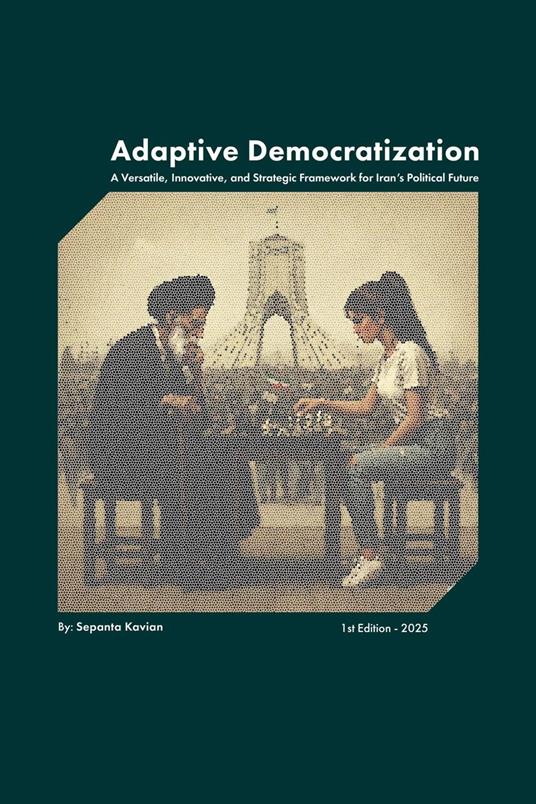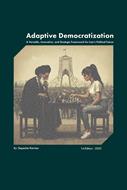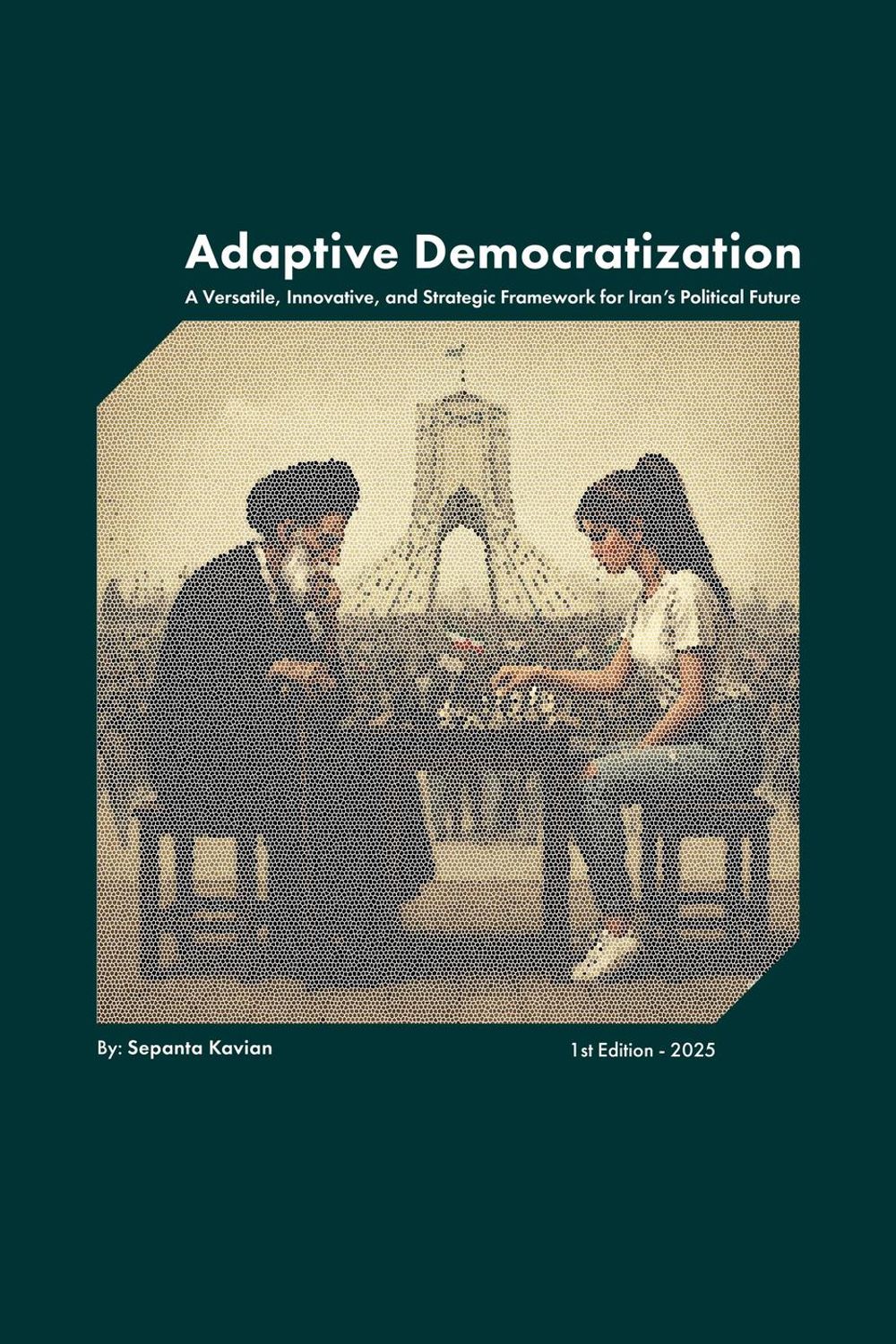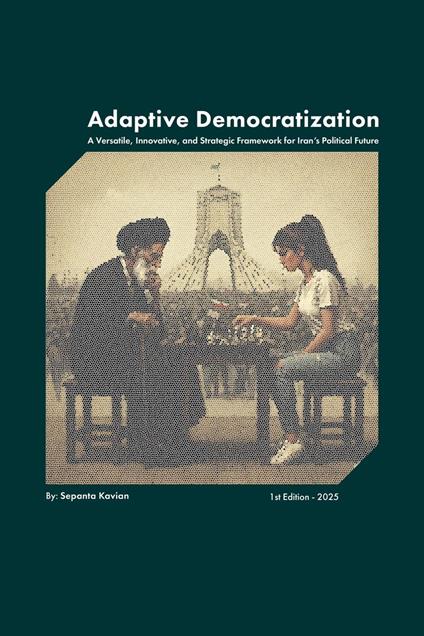Adaptive Democratization: A Versatile, Innovative, and Strategic Framework for Iran's Political Future
Adaptive Democratization: A Versatile, Innovative, and Strategic Framework for Iran's Political Future This study attempts to answer the fundamental questions of why and how democratization can occur within adaptive authoritarian regimes—systems that use flexible strategies to enhance their survival and longevity. Chapter Breakdown: Chapter 1 (Iran's Dilemma and Possible Pathways): Examines the structure of the Islamic Republic, questioning whether traditional democratization methods (like state-led reformism) can solve Iran's current political deadlock. It concludes that the system's deep instability requires innovative solutions, as past approaches are no longer adequate. Chapter 2 (Difficult Decisions and Harsh Realities): Addresses the position of domestic and international stakeholders, noting the complex adaptive strategies employed by the regime for its survival. It highlights the harsh reality that influential actors, both inside and outside Iran, have maximized their interests by adapting to the status quo. This leads to the conclusion that securing the national rights of Iranians requires difficult decisions and unique resolve against powers benefiting from the current situation. Chapter 3 (Tight Traps and the Search for Rescue): Stresses the dangers of maintaining the status quo and the necessity of urgent action. By reviewing lessons from international transitions (from South Africa and Chile to post-Soviet states), this chapter unveils a comprehensive plan for inclusivity that involves all currents, no matter how small their potential role in Iran's democratic process. Chapter 4 (Foundations and Political Genealogy): Discusses the theoretical underpinnings and typology of the proposed theory. It divides existing political groups into six categories, detailing their discourse and currents. By finding common ground among four of these six groups, it proposes an adaptive path for democratization. Chapter 5 (Stakeholders in Democracy): Expands the political typology within authoritarian systems and details the destructive role of hardline conservatives and authoritarian opposition groups. It then presents and describes the Democratization Circle, analyzing the roles of moderate conservatives, state-led reformists, civil-society-led reformists, and pro-democracy opposition. A hybrid and flexible model is introduced, encompassing Plan A (gradual reform/consensual democratization) and Plan B (complete overthrow/revolutionary democratization). Final Chapter (An Adaptive Roadmap for Iran): Reviews Iran's current specific conditions, emphasizing the need for synergistic action and effective force alignment. It adaptively examines three coalition frameworks for Iranian political forces (from informal synergy to formal union), advocates for a maximum-level coalition, proposes a structure for it, and discusses necessary actions for the pre-transition, transition, and post-transition phases. The author hopes this book will be viewed not as the end of Iran's political crisis, but as the beginning of a much-needed dialogue to resolve it.
-
Autore:
-
Anno edizione:2025
-
Editore:
-
Formato:
-
Lingua:Inglese
Formato:
Gli eBook venduti da Feltrinelli.it sono in formato ePub e possono essere protetti da Adobe DRM. In caso di download di un file protetto da DRM si otterrà un file in formato .acs, (Adobe Content Server Message), che dovrà essere aperto tramite Adobe Digital Editions e autorizzato tramite un account Adobe, prima di poter essere letto su pc o trasferito su dispositivi compatibili.
Cloud:
Gli eBook venduti da Feltrinelli.it sono sincronizzati automaticamente su tutti i client di lettura Kobo successivamente all’acquisto. Grazie al Cloud Kobo i progressi di lettura, le note, le evidenziazioni vengono salvati e sincronizzati automaticamente su tutti i dispositivi e le APP di lettura Kobo utilizzati per la lettura.
Clicca qui per sapere come scaricare gli ebook utilizzando un pc con sistema operativo Windows



